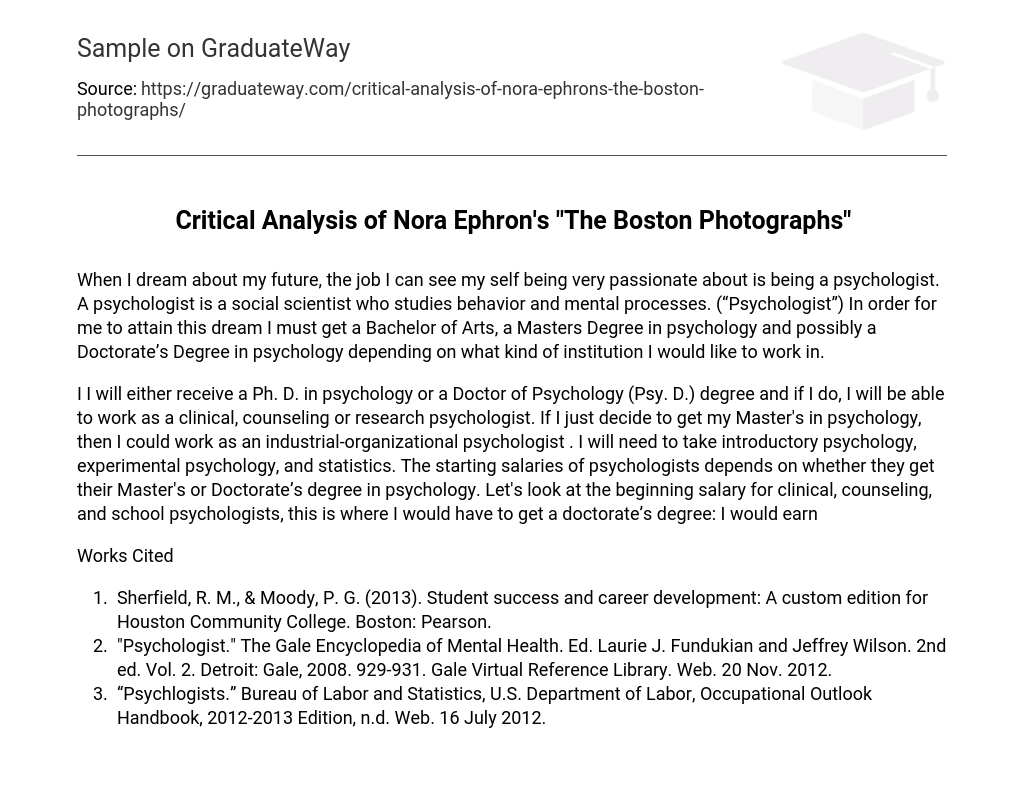When envisioning my future, I strongly desire to become a psychologist. Psychologists, as social scientists, dedicate their studies to analyzing behavior and mental processes (“Psychologist”). Achieving this aspiration requires obtaining a Bachelor of Arts degree, followed by a Masters and potentially a Doctorate’s degree in psychology, depending on the specific institution of interest.
I plan to obtain either a Ph. D. in psychology or a Doctor of Psychology (Psy. D.) degree, both of which would qualify me for work as a clinical, counseling, or research psychologist. Alternatively, pursuing a Master’s degree in psychology would allow me to become an industrial-organizational psychologist. Completing courses in introductory psychology, experimental psychology, and statistics is necessary for any of these paths. The starting salaries for psychologists vary based on whether they hold a Master’s or Doctorate’s degree. Let’s examine the starting salary specifically for clinical, counseling, and school psychologists who require a doctorate’s degree: I would earn
Works Cited
- Sherfield, R. M., & Moody, P. G. (2013). Student success and career development: A custom edition for Houston Community College. Boston: Pearson.
- “Psychologist.” The Gale Encyclopedia of Mental Health. Ed. Laurie J. Fundukian and Jeffrey Wilson. 2nd ed. Vol. 2. Detroit: Gale, 2008. 929-931. Gale Virtual Reference Library. Web. 20 Nov. 2012.
- “Psychlogists.” Bureau of Labor and Statistics, U.S. Department of Labor, Occupational Outlook Handbook, 2012-2013 Edition, n.d. Web. 16 July 2012.





